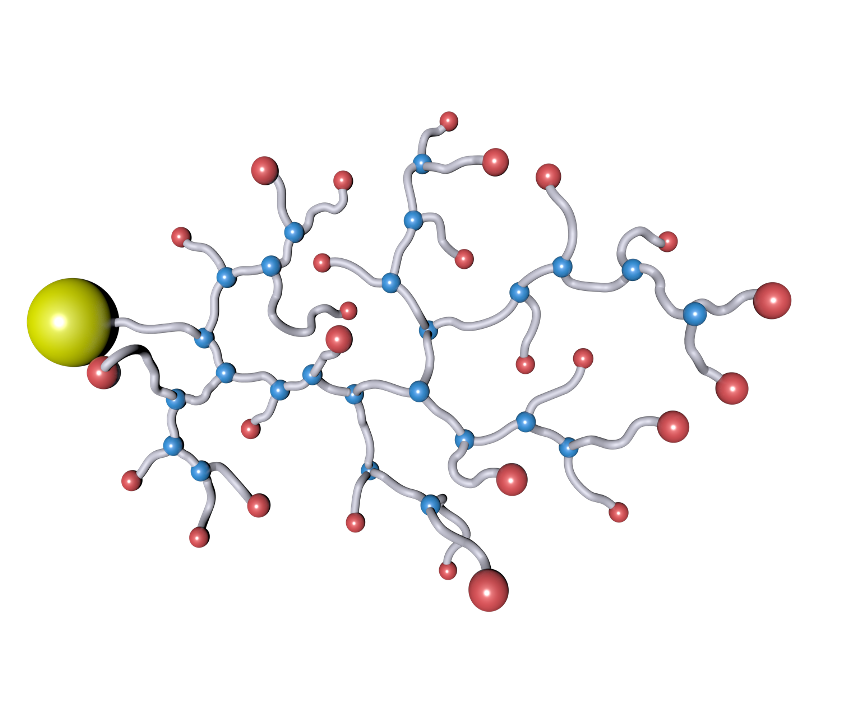Understanding Polymers: The Scientific Research Behind Versatile Materials
Understanding Polymers: The Scientific Research Behind Versatile Materials
Blog Article
Taking Advantage Of the Power of Polymers: Recognizing the Substantial Usages and Favorable Impacts
Polymers, with their diverse chemical frameworks and buildings, have actually come to be essential in countless markets, revolutionizing the way we interact with products on a day-to-day basis. From the product packaging that safeguards our food to the fibers that outfit us, the applications of polymers are vast and differed. Yet past their common visibility exists a much deeper understanding of their positive effects, reaching much beyond simple benefit. As we discover the considerable uses of polymers and their duty fit a more sustainable, reliable, and innovative future, it ends up being noticeable that their possibility is as vast as the particles themselves.
Adaptability in Everyday Products
Polymers display amazing flexibility in a large array of everyday products, demonstrating their indispensable duty in contemporary culture. From the versatile plastic casing of smartphones to the long lasting fibers in apparel, polymers have reinvented the method we communicate with items in our every day lives. Among one of the most usual uses polymers is in packaging products. Polyethylene, for instance, is commonly made use of in food packaging as a result of its light-weight, resilient, and moisture-resistant homes. Additionally, polymers play a crucial function in the vehicle sector, where they are utilized in making light-weight parts that improve gas efficiency.
Additionally, polymers have actually located their method into the healthcare industry, with applications varying from medical gadgets to drug shipment systems. Eco-friendly polymers are utilized in stitches and implants, minimizing the risk of adverse reactions in individuals. In the construction sector, polymers are integrated into paints, adhesives, and insulation materials, boosting durability and energy effectiveness. Overall, the versatility of polymers in day-to-day products emphasizes their relevance in driving advancement and enhancing lifestyle.
Sustainability in Material Innovations
With the recurring focus on ecological awareness and source efficiency, the emphasis moves in the direction of sustainability in product developments, mirroring an expanding dedication to liable production methods across various sectors. Recently, there has been a remarkable rise in the growth of lasting products, particularly within the world of polymers. These cutting-edge products are developed to reduce environmental impact throughout their whole lifecycle-- from sourcing raw products to disposal or recycling.
One significant facet of sustainability in product innovations is the principle of biodegradability. Biodegradable polymers have actually amassed focus for their capability to break down naturally into non-toxic by-products, lowering waste and contamination. In addition, making use of recycled polymers stemmed from post-consumer or post-industrial sources is obtaining traction as a way of advertising a round economic situation and minimizing dependency on virgin products.

Enhancing Performance in Engineering
Enhancing performance in design needs a precise integration of sophisticated technologies and this hyperlink precise approaches to optimize performance and efficiency in numerous commercial applications. Polymers play an important role in this endeavor, offering a large range of benefits that improve the efficiency of design products and elements.
One secret aspect of browse around here boosting efficiency in engineering is the capacity of polymers to improve resilience and strength. By incorporating polymers into engineering layouts, suppliers can create light-weight yet durable structures that can hold up against high levels of stress and anxiety and pressure. This particular is especially useful in markets such as aerospace, auto, and construction, where the need for solid yet lightweight materials is vital.
Moreover, polymers can additionally enhance performance by supplying thermal and chemical resistance, decreasing friction, and boosting electric conductivity. These homes make polymers suitable for a broad variety of engineering applications, including seals, bearings, coverings, and digital elements. Polymers. By utilizing the special buildings of polymers, designers can enhance the performance of their styles and develop more reliable and dependable products
Effect on Medical Developments
Polymers have played a critical role in modern medical innovations, ranging from medicine distribution systems to tissue engineering. One of the key locations where polymers have made a considerable influence is in the growth of biodegradable sutures and implants.
In addition, polymer-based materials are increasingly being used in medical devices such as catheters, stents, and prosthetics as a result of their biocompatibility and versatility. For circumstances, polymer finishes on medical gadgets can protect against infections and enhance total person end results. In addition, innovations in nanomedicine have actually allowed making use of polymer nanoparticles for targeted medication shipment, improving the efficacy and decreasing negative effects of various medicines
Role in Environmental Preservation

Additionally, polymers are used in water treatment processes, assisting in the purification and recycling of water sources. This helps in decreasing water contamination and making certain access to clean water for both human intake and environmental wellness. Polymers also contribute in farming via the development of naturally degradable mulches and controlled-release plant foods, promoting sustainable farming practices.
Final Thought
In verdict, polymers have actually verified to be a flexible and essential material in different industries, from day-to-day items to engineering and medical innovations. Comprehending the extensive uses of polymers underscores their importance in driving development and progress in numerous fields.
Report this page